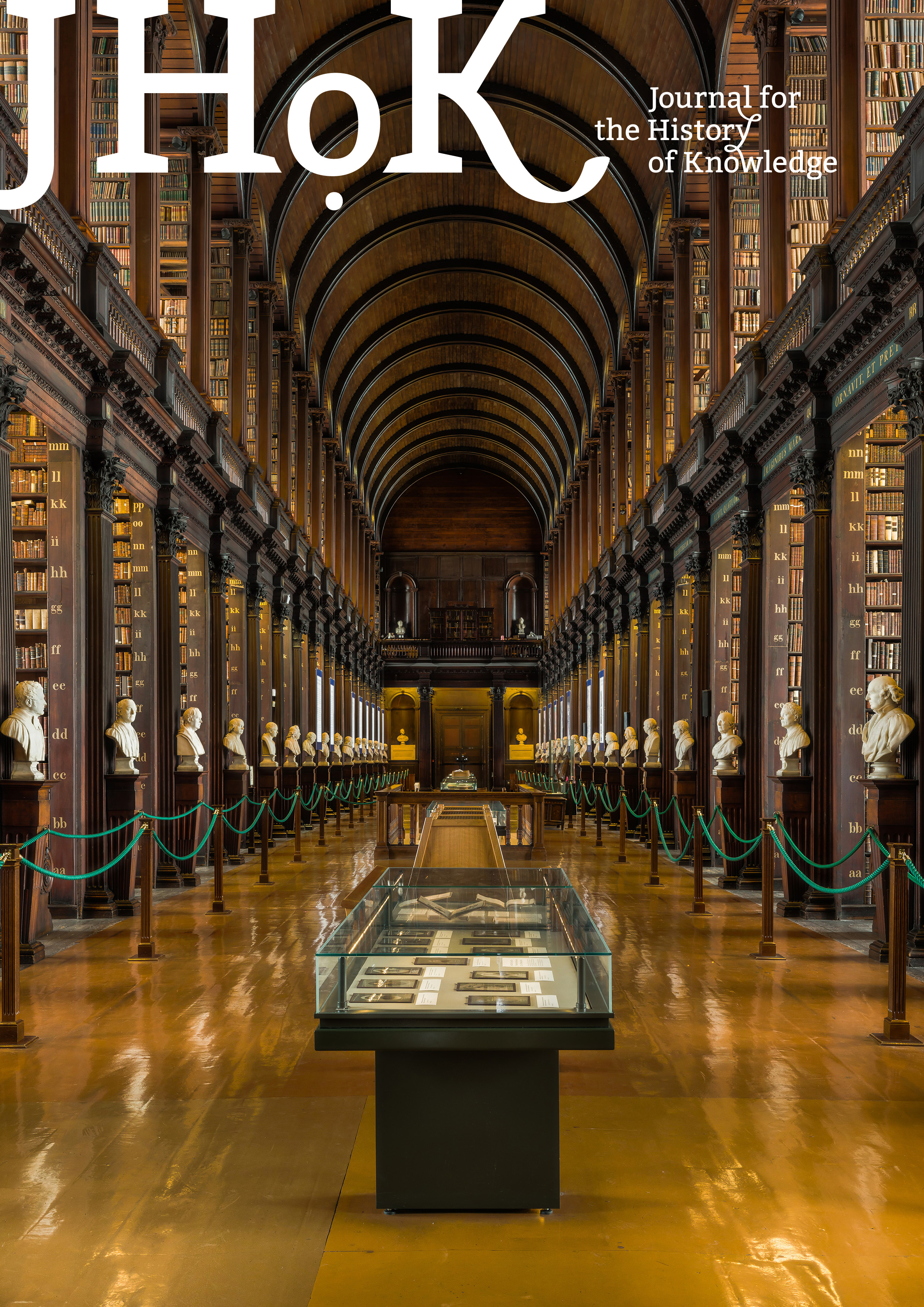Producing Knowledge in Early Modern Rome: Concepts and Practices of Disegno in the Accademia di San Luca and the Accademia dei Lincei
DOI:
https://doi.org/10.5334/jhk.8Keywords:
Disegno, Federico Zuccari, Accademia di San Luca, Accademia die Lincei, natural philosophy, epistemic imagesAbstract
This article offers new insights into the relationship between science and art in the early modern period by focusing on the concepts and practices of disegno (meaning a physical drawing or a mental design) in two Roman academies around 1600: the Accademia di San Luca and the Accademia dei Lincei. The first president of the Accademia di San Luca, Federico Zuccari, developed an elaborate theory of art that centered on the concept of disegno. More than other contemporary art theorists, Zuccari explicitly connected the process of artistic production to that of knowledge acquisition, and he described his theory of disegno as belonging to natural philosophy. The first part of the article provides a more profound interpretation of the relationship between the theoretical and the practical parts of Zuccari’s theory than has hitherto been given. His views of the relationship between knowledge acquisition and artistic production play a central role in this interpretation. The second part shows how his theory of disegno informed his ideas for the step-by-step training program of the Accademia di San Luca. In the third part, Zuccari’s theory of art is used to analyze the functions of the disegni (drawings, woodcuts, and engravings) and the artists the Accademia dei Lincei employed for its scientific projects in the first half of the seventeenth century. Seen through the lens of Zuccari’s theory, it is possible to understand the images as well as the artists themselves as instruments in the Lincean investigation of nature and to explain the different categories— academic or non-academic—used to distinguish among the different levels of proficiency that artists could attain.



